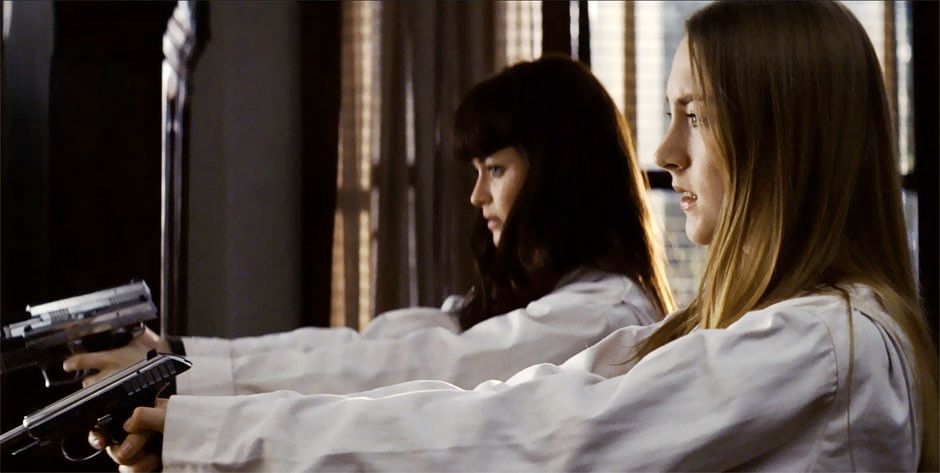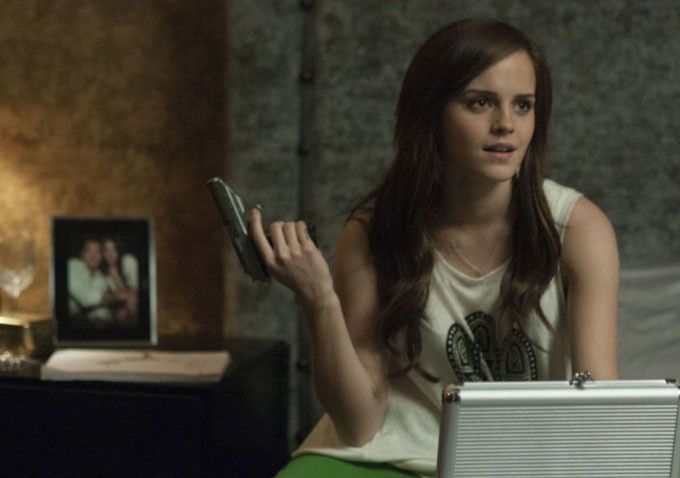First came Spring Breakers, then Violet and Daisy, and in a couple of short weeks, The Bling Ring will saunter into theaters. All three films feature young women committing a variety of crimes -- drug running, murder, theft from Paris Hilton – but otherwise, they’re very different. There's no mistaking Spring Breakers director Harmony Korine for Sophia Coppola, who debuted The Bling Ring at Cannes. It's even stranger, then, that baby-faced girls with guns are popping up all over the place this summer in off-beat indie films, even though they’re notably absent from summer blockbusters. What the heck is going on?
Americans are fascinated by girlhood. We value "princess" qualities in little girls to an extreme degree: Sweetness, compliance, attractiveness, innocence. Anything that disrupts that notion of girlhood (sugar and spice and everything nice) is a shock to the system -- and it sells. Corruption of innocent women is one of the oldest themes in film (if not the oldest; the plot of Birth of a Nation centers on protecting white women from rape). In real life, trials of young, relatively privileged women gone astray (like Amanda Knox) make headlines in respected newspapers and tabloids alike. Think about how many reality shows are about warped girlhoods: Teen Mom, Toddlers and Tiaras, even Bridezillas is about the transformation of a theoretically angelic young woman (a bride) into a monster.
The women in the movies coming out this summer are particularly baby-faced, particularly imbued with an innocence that stands in contrast to the violent things they do. In Violet and Daisy, Alexis Bledel attempts to shed her Gilmore Girls image for the second time (remember Sin City?). Emma Watson tries to get past Hermione in The Bling Ring. At the same time, however, they're trading on their reputations as "good girls" to shock audiences when they start stomping around with handguns. This is very, very different than when an actress like Angelina Jolie or Uma Thurman or even Helen Mirren stars in an action film. These women don't come on screen as innocent princesses waiting to fall from grace. They're adults.
There are male equivalents to these female anti-heroes, good guys gone astray. Batman's origin story is about a loss of innocence. The same goes with Don Draper. Deprived of a normal boyhood, these men make a grab for control. But when we see their origin stories, there is far less emphasis on their innocent setup than on the damaged characters they ultimately become. In other words, their stories are about men, not boys. The stories in question above are about girls, not women.
Of course, there are a lot of interesting stories about girls and innocence - and some of those stories say more about our society and culture than they do about how cool it is to watch girls blow things up. Sophia Coppola has directed two films like this already: The Virgin Suicides and Marie Antoinette. If you want something stranger and more Scottish, watch Morvern Callar, staring Samantha Morton.
There's one person who’s pretty notorious for telling stories about good girls gone wrong: Joss Whedon. He plays with the idea of corruption, control, violence and redemption -- typically with a young actress at the helm. Whether those stories are compelling depends on whether that corrupted girl has anything more going on in her life than an inevitable spiral toward her own doom. That’s why Faith has always been interesting to me, while Evil Willow and Darla are kind of a drag.
I want to see Emma Watson and Alexis Bledel grow into fierce, bankable actresses who are known for more than their wide-eyed corruptibility. It can happen: They just have to get past our cultural obsession with innocence first.



